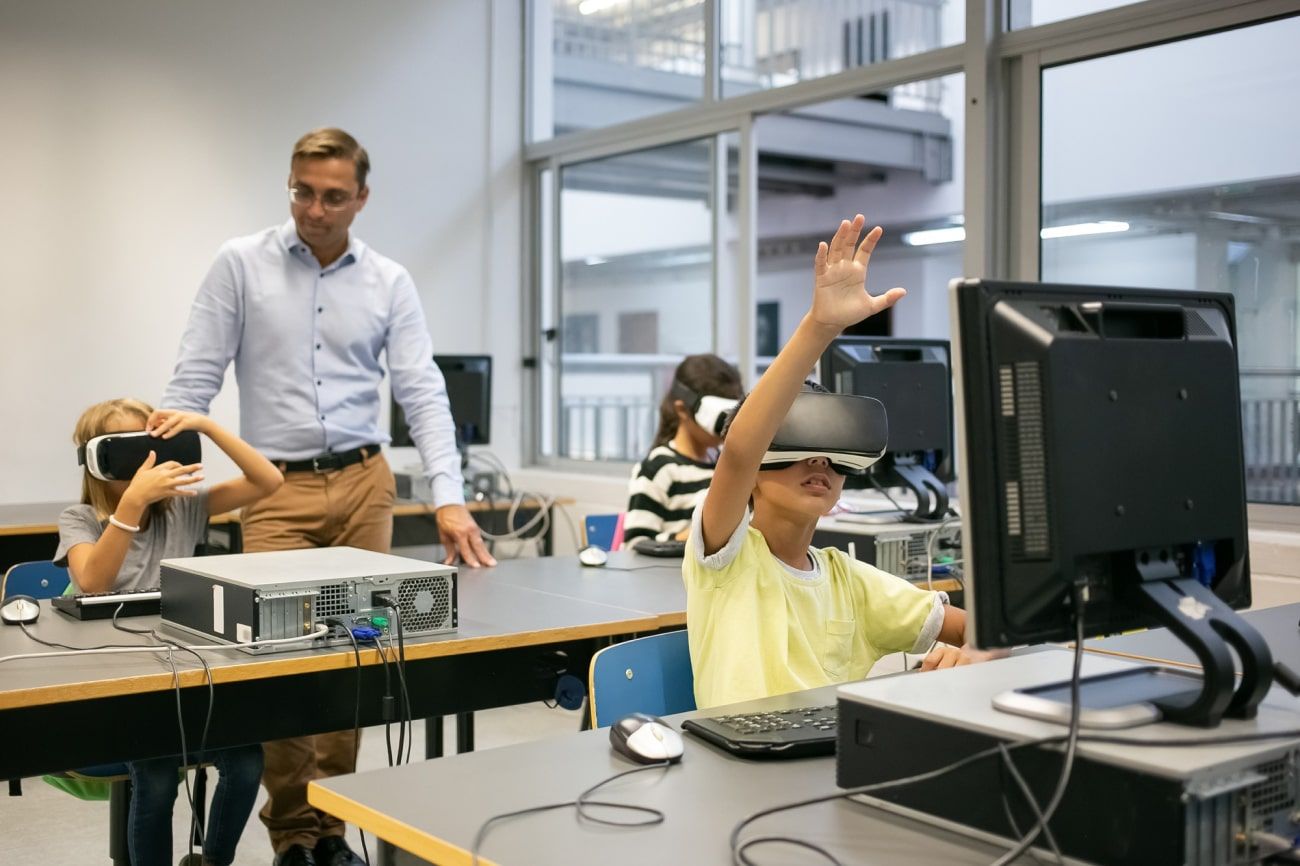As technology advances rapidly, artificial intelligence is set to change the game in education. Imagine walking into a classroom where lectures are tailored just for you or a chatbot answers your math sums anytime and anywhere. Sounds great, right? AI in education is making this a reality.
The integration of artificial intelligence in education is enhancing the learning journey worldwide. AI-driven technologies are reshaping traditional learning methods, making them more personalized, efficient, and accessible. From advanced schooling systems to automated grading tools, AI is defining the future of education, benefiting educators and students alike.

-
Benefits of AI in Education
With increasing interest in AI and education, we should understand AI's current state and future promises in this sector. Here are a few benefits of artificial intelligence in education:
-
Personalized learning
With AI in education, students no longer have to struggle through materials that don’t suit their pace or learning method. Instead, the learning process is individualized according to their unique strengths, weaknesses, and performance. AI analyzes student responses in real-time and helps teachers to plan their lessons accordingly.
-
Immediate feedback
AI-powered assessments provide quick feedback, helping students understand the concepts or correct their mistakes on the spot. They don’t need to wait for teachers to be available. AI also gives automated advice on their work and exams. This is a major advantage of using artificial intelligence in education, fostering continuous development and self-guided learning.
-
Better accessibility
Now that AI and education are closely linked, they are opening doors for everyone. Students with disabilities can learn using AI tools like text-to-speech and speech recognition. Features like real-time translation make education more inclusive. Plus, students in remote areas have flexible learning opportunities on the go.
-
Simplified administration
Teachers can take a back seat as AI takes over time-consuming tasks like grading, scheduling, report generation, tracking student performance, and assigning resources more efficiently. This means educators and institutions get more time for in-person teaching and mentoring. AI can access class tests or essays within minutes, saving time and avoiding human errors.
-
Smart content creation
Another key role of AI in education is creating classroom content to engage students and make lessons enjoyable. Teachers can create quizzes, lesson plans, and more with a quick prompt. AI can also make traditional books more interactive. Educators can use AI to develop subject-specific learning modules, bridging the gap between the lessons and study materials for educators and helping create personalized content for students.
-
Flexible learning opportunities
AI-driven online learning platforms allow students to learn at their convenience. Virtual classrooms and AI tutors provide 24/7 assessment, letting students study anytime and anywhere. Integrating AI in education takes learning beyond the classroom and makes it available to anyone, regardless of their location.
-
Increased scalability
Artificial Intelligence in education lets institutions accommodate more students while maintaining high quality. AI-based platforms can handle large volumes of data and provide tailored learning experiences, ensuring that education remains accessible and consistent for a larger group of learners.
-
Artificial intelligence is reshaping the future of learning through personalized, efficient, and accessible education. The benefits of AI in education extend to students, educators, and institutions. However, addressing challenges like privacy breaches, data security, biased algorithms, and more is crucial for the successful implementation of AI in education.
As technology continues to evolve, AI will play an even more prominent role in shaping the educational sector, ensuring that learning remains engaging, inclusive, and effective for future generations.
